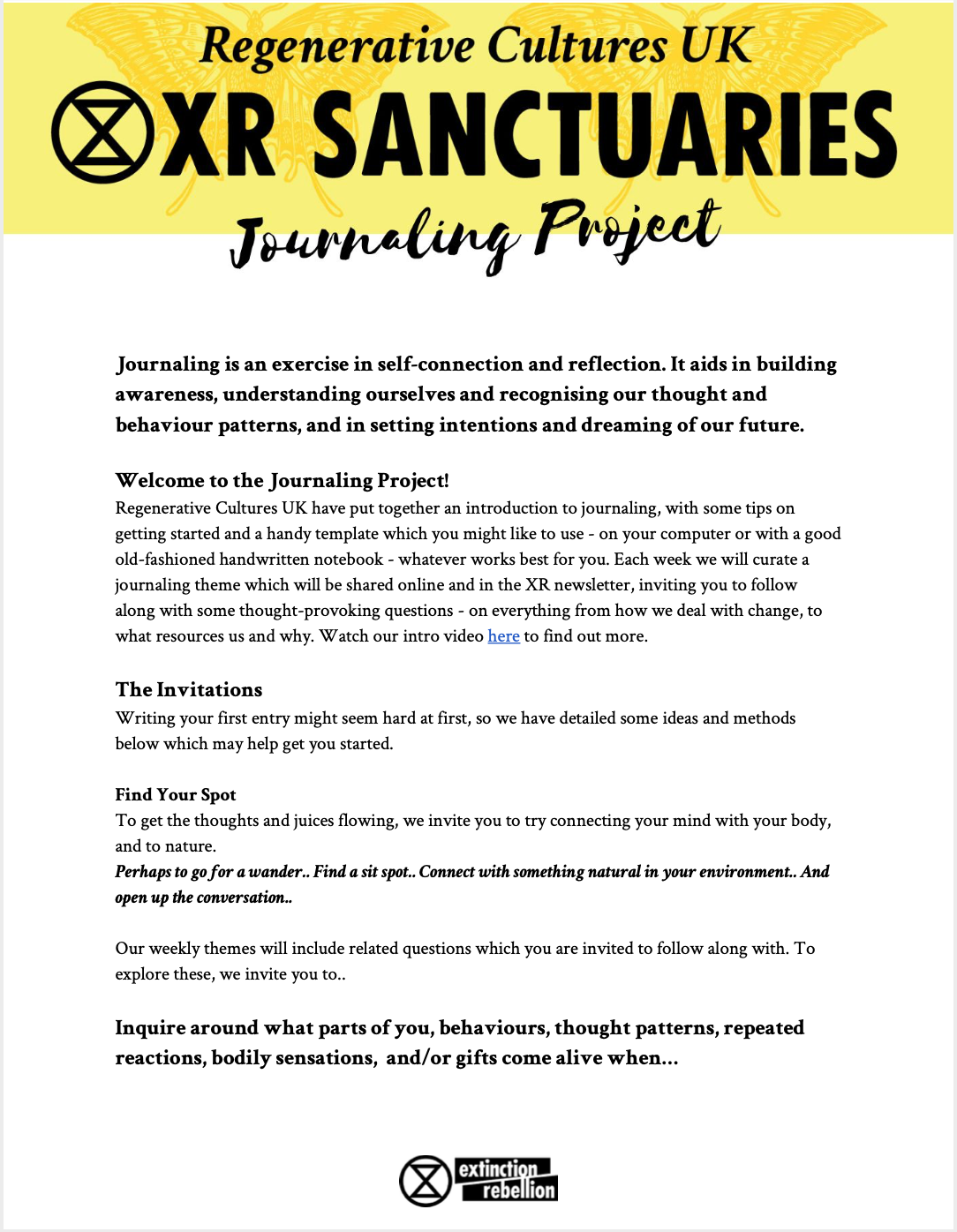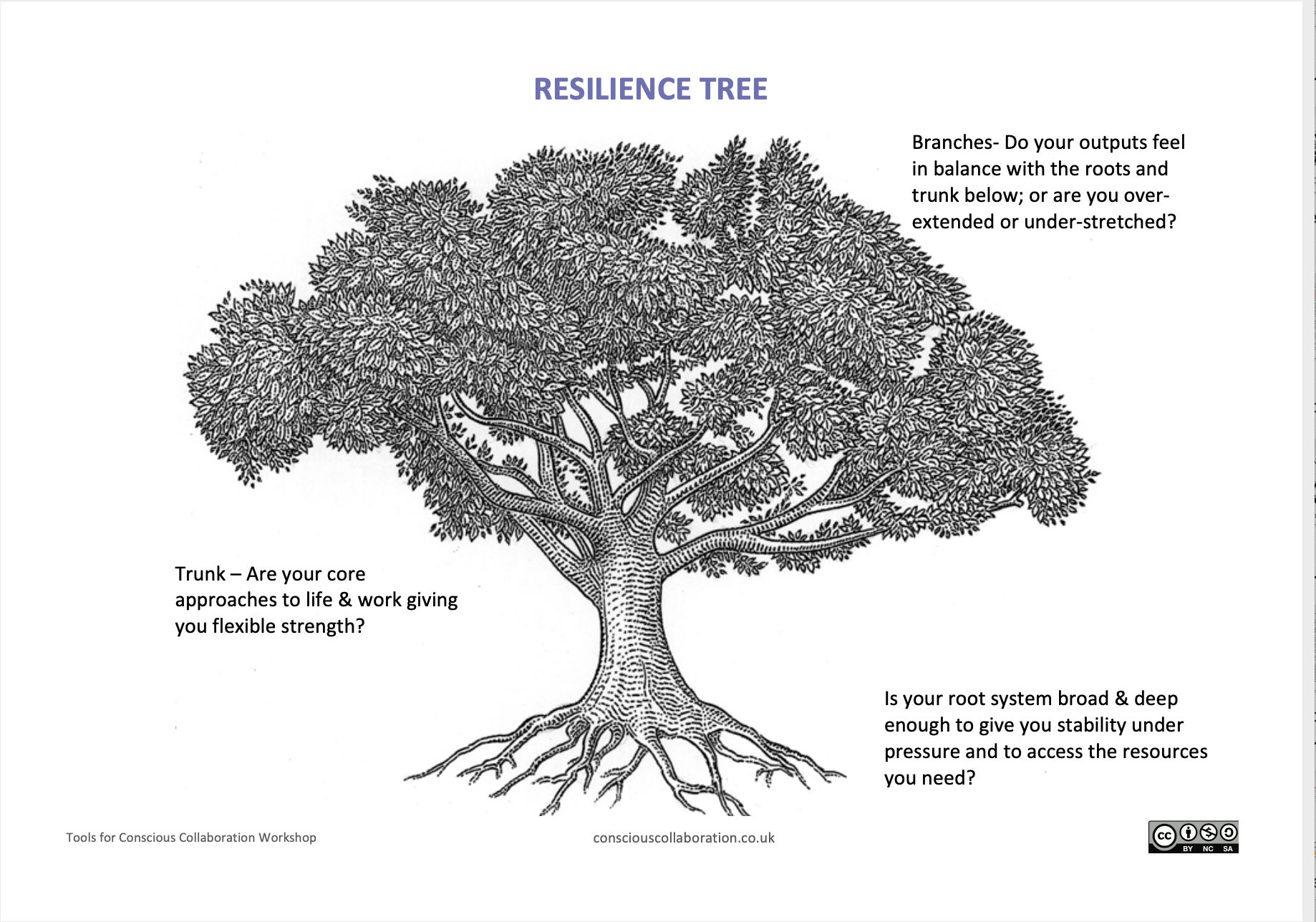SELF CARE
“Caring for myself is not self-indulgence, it is self-preservation,
and that is an act of political warfare.” - Audre Lorde
Also known as: What we sometimes call the inner work
It’s important because: We are not machines. We need to look after ourselves in order to better look after each other and achieve what we want to achieve.
To foster self-care we need to take Personal Responsibility
As people who live in a nation that has accumulated wealth and resources through violence and oppression, how do we grieve this, sit with this and continue to bring awareness into our lives and actions. We are all the product of our environment. We all internalise the violence inherent in our cultures. We have a duty to do the work that can undo those internalised prejudices and behaviours, so we can learn to interact in a healthier way.
Here you can find resources that can help you get rid of internalized patterns
Selfcare resources
Tips for Finding steady ground
Meditation & breathing
Do a little moment of mindfulness
One can lead the mindfulness moment following these steps, waiting a few moments between one step and the other.
Close your eyes. Take a couple of deep breaths.
Let's start focusing on the sound around us. Now let's switch out attention to our body, and let's try to feel why feels light or heavy, comfortable of uncomfortable:
We´ll start from the top of the head, then face, the neck, the shoulders, the chest, the belly, the hips, the upper legs, the lower legs, and the feet.
Now let's focus for a couple of moments on our breath, and on the rising and falling sensation we experience in our body.
Become aware of your surroundings
Close your eyes and focus on the sounds and smiles, feel how your body is connected to the ground. Scan your body from head to toe finding out how each body-art feels and what has been on your mind focus on your breathing for a while for example by counting the breath.
Thanking your body
Heart prayer
Breathwork introduction
Avoiding Burnout
“Burnout” is a term that is often used. It can be caused by taking on a lot of projects at one time, by being in a constant state of high-anxiety/stress, loss of external control and experiencing/witnessing traumatic events. After a prolonged period of a heightened state of stress, the body literally starts to work differently, changing your body’s hormone systems.
Burnout is your body telling you that you need to support yourself, get help where needed or take a break.
Burnout doesn’t always occur straight after an incident or period of high-stress, sometimes it is a delayed response and will only be felt months later. This is why it is so important to have a sustainable, reliable, supportive culture in place.
Burnout can occur for people who take on or support direct action, including both organising and engaging directly, because we often take on a lot or find ourselves in high energy or anxiety provoking situations, and of course we take this stuff on because we really care.
16 tips for avoiding climate burnout
Sustainable activism & avoiding burnout
Behavioral signs and symptoms of burnout: Withdrawing from responsibilities, isolating yourself from others, procrastinating, using food, drugs, or alcohol to cope, taking your frustrations out on others, skipping work or going in late.
Burnout doesn’t go away on its own so it’s important that you address the underlying issues causing it and create strategies for recovery. Dealing with burnout requires you to recognise your warning signs of burnout:
Any physical actions that may contribute to burnout – lack of sleep or irregular sleep, not eating well, skipping doing things you love
Physical signs and symptoms of burnout:
feeling tired and drained most of the time, lowered immunity and frequent illnesses, frequent headaches or muscle pain, change in appetite or sleep habits.
Emotional signs and symptoms of burnout:
sense of failure and self-doubt, feeling helpless, trapped, defeated, detachment, feeling alone in the world, loss of motivation, increasingly cynical and negative outlook, decreased satisfaction and sense of accomplishment.
Any beliefs about yourself or the world that contribute burnout; how many “shoulds”, and “musts” are driving you?
Which ones de-energise you?
Can you change the word “should” to “could” and “must” to “choose”?
Notice the difference that makes to your choices. Reverse & Recover – Undo the symptoms of burnout by seeking support, managing stress, nourishing yourself (physically, emotionally, mentally and spiritually) so that you can continue your work from a resourced place. Build your resilience to stress by taking care of your physical and emotional health.
What are things that give you energy?
Strengthening your resilience can help to prevent you from getting a burnout
Radical Resilience is a film project that aims to spread awareness and encourage discussion about burnout within environmental/social change movements.
Rest as Resistance
Es beginnt alles mit einer Idee.
What resting could look like
A daily stroll, through the park, all by myself
Go for a barefoot walk and really feel the ground beneath
Stay the day in bed
Dance, and move your body the way that feels good for you
Blowing bubbles
Making yourself a hot water bottle
Calling a friend and be their company for the day.
Drinking hot tea and read a book
What are the things that help you to get rest?
Resilience
Es beginnt alles mit einer Idee.
10 ways to get more resilience
1. Reach out to those closest to you, be more sociable with your coworkers. Connect with a cause or a community group that is personally meaningful to you e.g Extinction Rebellion
2. Set boundaries. Don’t overextend yourself. Learn how to say “no” to requests on your time. If you find this difficult, remind yourself that saying “no” allows you to say “yes” to the commitments you want to make. e.g “I’d like to say yes, but I have to say no. I am at full capacity r ig ht now.”
3. Take a daily break from technology. Set a time each day when you completely disconnect. Put away your laptop, turn off your phone, and stop checking email.
4. Nourish your creative side. Creativity is a powerful antidote to burn-out. Try something new, start a fun project, or resume a favorite hobby. Choose activities that have nothing to do with work or whatever is causing your stress.
5. Set aside relaxation time. Relaxation techniques such as yoga, meditation, add link and deep breathing activate the body’s relaxation response, a state of restfulness that is the opposite of the stress response.
6. Get plenty of sleep. Feeling tired can exacerbate burn-out by causing you to think irrationally. Keep your cool in stressful situations by getting a good night’s sleep.
7. Make exercise a priority. Even though it may be the last thing you feel like doing when you’re burned out, exercise is a powerful antidote to stress and burn-out. It’s also something you can do right now to boost your mood.
8. Reduce your negative mood foods that can adversely affect your mood, such as caffeine, trans fats, and foods with chemical preservatives or hormones.
9. Avoid nicotine. Smoking when you’re feeling stressed may seem calming, but nicotine is a powerful stimulant, leading to higher, not lower, levels of anxiety.
10. Drink alcohol in moderation and in some cases not at all. Alcohol temporarily reduces worry, but too much can cause anxiety as it wears off.
found on www.consciouscollaboration.co.uk

















